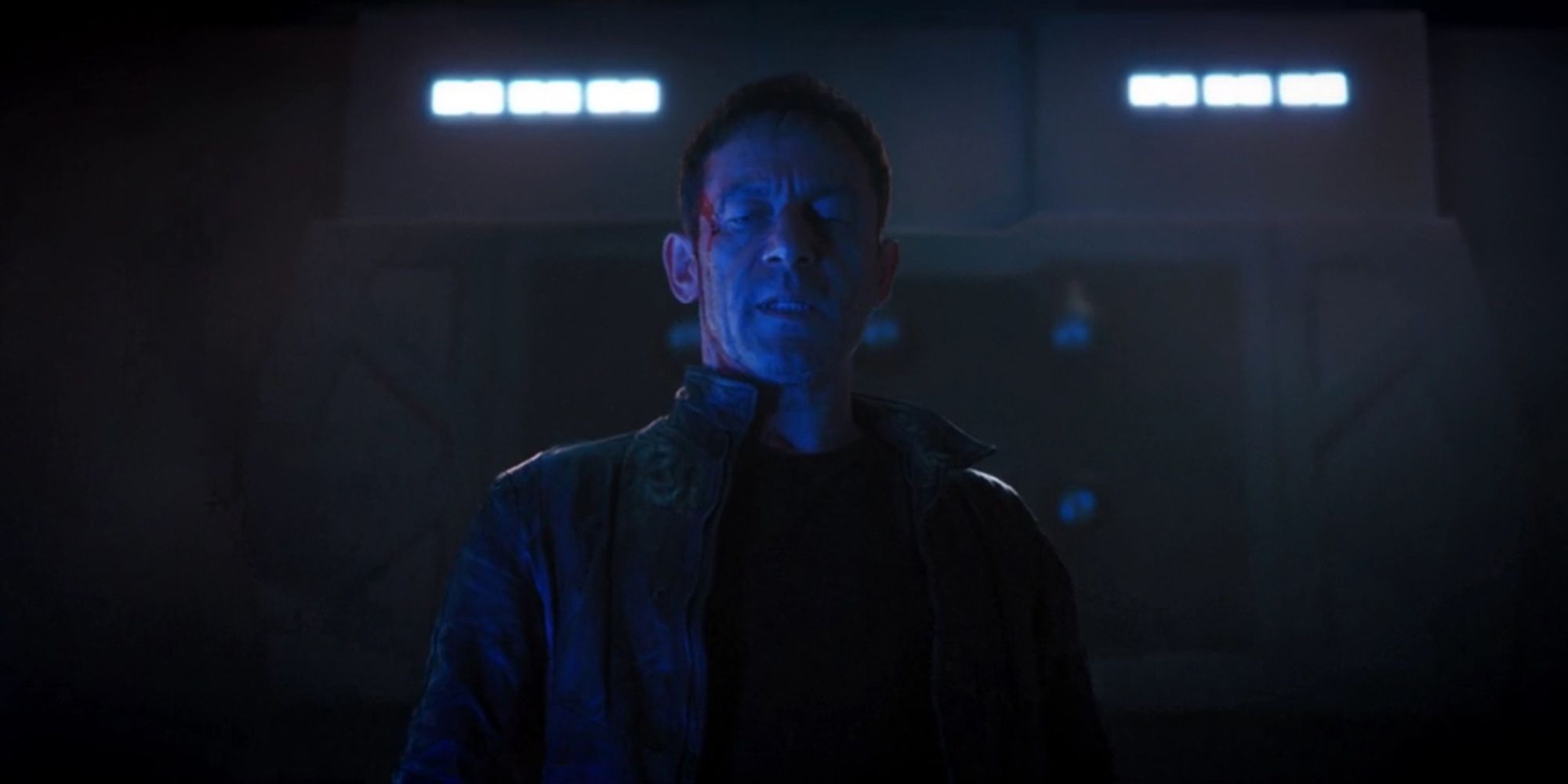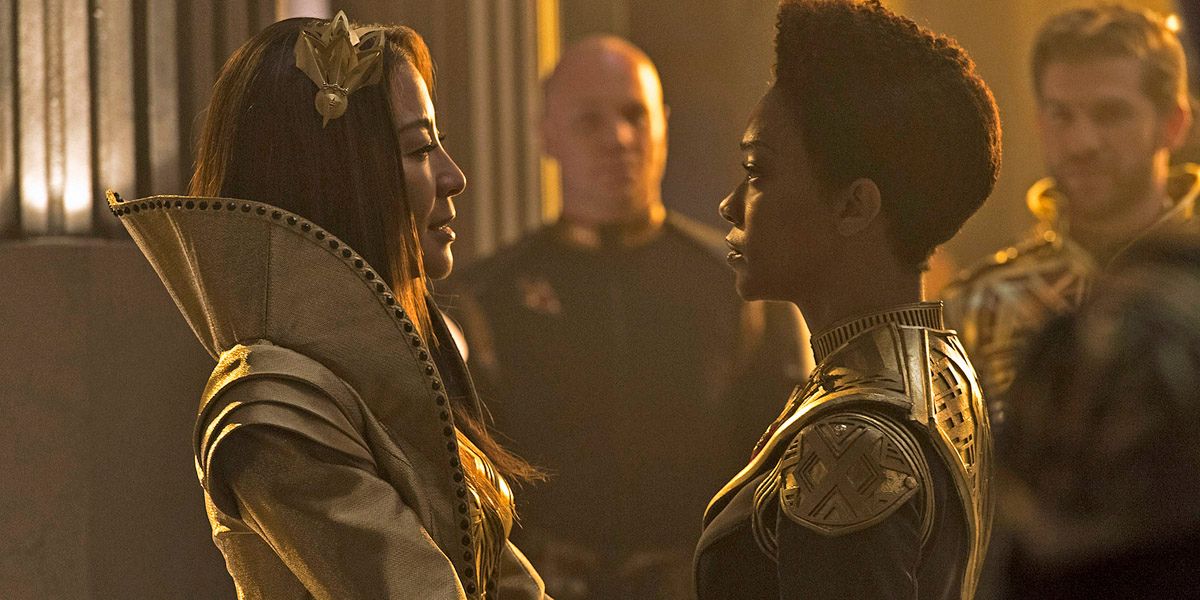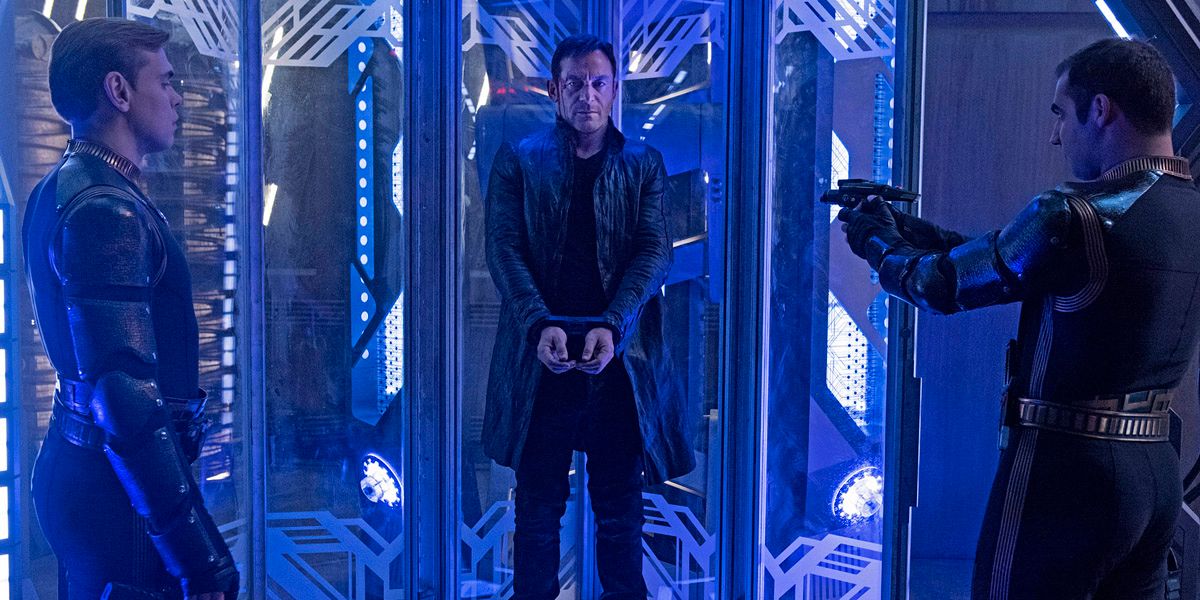The Mirror Universe is one of Star Trek's most popular conceits. Born out of a one-off episode of the Original Series ("Mirror, Mirror"), the "What if humanity hadn't turned out so well?" concept proved to be an enduring one. While Star Trek: The Next Generation never visited the alternate dimension, Deep Space Nine and Enterprise both featured Mirror Universe arcs. Voyager never had one, either, but it did air an episode called "Living Witness" that demonized the crew in much the same way.
Of course, the reason the franchise returns gain and again to the idea of an Evil Twin-verse is that, inherently, it's really fun to take the traditionally goody-goody Federation and give it a bit of a dystopic edge. The Mirror Universe was always a fun vacation from the Federation, because who doesn't want to see staid heroes misbehave and wear sexier uniforms?
RELATED: Star Trek: Discovery Just Pulled a Game of Thrones
Ultimately, Mirror Universe arcs and episodes never amounted to much more than fan service because the concept of the Terran Empire was so implausible it was hard to be frightened of it. It wasn't so much a social commentary as a chance to take a field trip from normal characterization. Star Trek: Discovery has headed in a considerably different direction and has wound up making Star Trek more socially relevant than it's been in decades.
While Discovery's midseason premiere "Despite Yourself" was admittedly hilarious, it was also deeply contemplative, and the following three episodes followed suit. There was little humor to be found in "The Wolf Inside," "Vaulting Ambition" or this week's "What's Past is Prologue." In their place came a sense of despair and foreboding that wafted around Michael Burnham as she ventured deeper into the belly of the beast, and lost every ally along the way.
Instead of being a weightless foray into the realms of "What if?" Discovery took the Mirror Universe seriously. It gave us an unflinching look at what it would really be like to live in a fascist regime built on a foundation of "might is right." "Despite Yourself" ended on a close-up of Lorca's anguished face as he writhed in an agonizer. "The Wolf Inside" featured a visceral execution scene in which criminals guilty of thoughts against the Terran emperor are beamed directly into the vacuum of space. And let's not forget "Vaulting Ambition's"Kelpien soup.
The entire universe is darker, considering the Terran sensitivity to light, the golden tone and long shadows casting everything in an ominous glow. Oh, and virtually no one smiles unless they're about to kill something. No one's twirling any mustaches over here -- they're too busy spending every waking minute trying to make sure they advance at the expense of everyone else. It's hard to have fun when you're constantly watching your back, even you have a crew of slaves at your disposal to give you sponge baths and file your nails.
Page 2: [valnet-url-page page=2 paginated=0 text='Discovery%27s%20Mirror%20Universe%20Arc%20Is%20a%20Pointed%20Allegory']
The visceral, dystopic nature of this Mirror Universe even took away the amusing anticipation of meeting "evil" counterparts. Instead, there was dread at seeing what disturbing personality would inhabit them. While Emperor Georgiou did possess, at least, the ability to keep her word, it was still heartbreaking to watch our kind, wise Captain Georgiou chow down on a Kelpien and murder her closest advisers without a second thought.
RELATED: Star Trek: Discovery’s Lorca Isn’t the Enemy Burnham Needs to Worry About
Finally, the show tweaked the concept of the Mirror Universe itself. Instead of populating it with the exact opposites of familiar Federation counterparts, Discovery showed us people with similar characteristics, but mutated by life in the Terran Empire. Suddenly, not everyone was a villain, but a believable version of themselves under Terran rule. Tilly's disturbed at the mere possibility there could be a version of herself who's guilty of the crimes of "Captain Killy," because it means the potential, however latent, exists within her to follow the same path. No other Star Trek series has had characters who internalized the existence of their Mirror counterparts in quite that way. It pointed to the show's larger mission in introducing the Mirror Universe in the first place: to point out that the real world seems to have transformed into a Mirror version of itself.
As previously mentioned, one of the reasons the Mirror Universe was such a fun detour is the inherent, laughable implausibility of a human society founded on the principles of racism, fascism and conquest. Unfortunately, that doesn't feel so implausible now. We live in an age when the American president refuses to publicly decry neo-Nazism, and it's become clear our country is hiding many more closet racists than we had any idea existed. With the advent of social media, these movements have grown unchecked, so, to some, it's as though the fabric of our society removed a mask to reveal the villainous goatees they've been sporting the whole time. If Discovery had inserted a fun, fan service Mirror Universe into its first season, it would've been mind-numbingly tone deaf. But it should be obvious to anyone who watched that "fun" was never the point.
Discovery's Mirror Universe arc was a very pointed (at times too much) allegory for what's happening socially and politically in the world today. From the accusations of weak border control Lorca levies at Georgiou to his call to "Make the Empire Great Again," it's impossible not to draw connections between the real-world movements and the fictional people Lorca represents. The fact that the show committed to such a heavy-handed message made Discovery more socially relevant than Star Trek has been perhaps since its inception.
In the 1960s, Gene Roddenberry's diverse Enterprise crew combined with the pointed elimination of racism made a strong statement in the middle of the Civil Rights Movement and the Cold War. The show used science fiction as a vehicle for progressive ideas that wouldn't be tolerated by the mainstream. Ironically, Star Trek is far more mainstream than it ever has been, but Discovery just made it very clear that the franchise's core values haven't changed. By using the fan service inherent in the Mirror Universe trope, Discovery made sure everyone was listening when it loudly called out trends in our culture that stand diametrically opposed to everything Star Trek stands for. From two-piece uniforms to trenchant cultural statement? We'd like some more, please.
Airing Sundays at 8:30 p.m. ET on CBS All Access, Star Trek: Discovery stars Sonequa Martin-Green, Doug Jones, Jason Isaacs, Anthony Rapp, Shazad Latif, Mary Wiseman, Wilson Cruz and Mary Chieffo.



